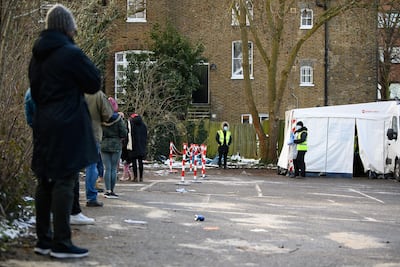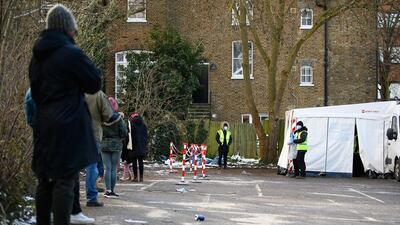New coronavirus variants appear to be under control in Britain as door-to-door surge testing continues.
Data released by Public Health England show there have been 170 confirmed cases of the South African variant, which is believed to be more transmissible than other strains.
Of those infections, all but 18 were linked to international travel, indicating limited community spread. The figures, from February 8, also show there have been only 16 additional cases since the surge programme got under way.
Earlier this month it was announced that parts of England would be targeted with door-to-door testing in a bid to prevent the variant spreading. Boroughs in south London, Manchester and the West Midlands were among the first places to have mobile testing sites set up, with everyone in the selected areas urged to get a test, even if they did not have symptoms.

Dr Susan Hopkins, PHE’s strategic response director, described the numbers as “reassuring” because they suggest the variant has not taken hold in the UK.
Dr Simon Clarke, Associate Professor in Cellular Microbiology at Reading University, said he believed surge testing was worthwhile but issued caution over the PHE findings.
Community testing is generally not as effective at identifying the South Africa strain as hospital tests, therefore it is only being detected in about one in 10 cases, Dr Clarke said.
"We know for things like the [Imperial College London] React study and from the Office for National Statistics that the true number of infections is far higher. In reality it's going to be in the order of the thousands, rather than the hundreds", he told The National.
PHE said the Kent variant had been confirmed in 51,550 specific instances, and only a handful of infections related to the Brazil and Japan variants, which were also being monitored closely.
Authorities in Britain have not concealed their concern over the emergence of the South African strain, also known as B1351 or 501YV2. Questions remain over the efficacy of vaccines against it, with early data from a study of the Oxford-AstraZeneca vaccine showing limited protection.
Earlier this month, South Africa announced it would suspend the distribution of the AstraZeneca drug to frontline health workers after an early trial showed almost no effect on mild to moderate cases. South Africa had purchased 1.5 million doses of the AstraZeneca vaccine, produced by the Serum Institute of India, and the first million doses arrived this month.
Meanwhile, Prince Charles, 72, and his wife Camilla, 73, were vaccinated as UK health authorities urged those over the age of 70 to have their inoculation.
About 12.5 million people have so far had a vaccine dose, using either the Pfizer-BioNTech or Oxford-AstraZeneca drugs.












